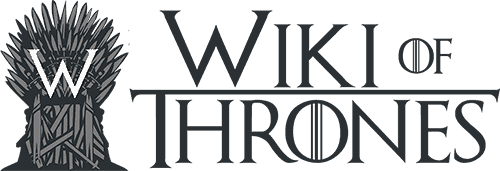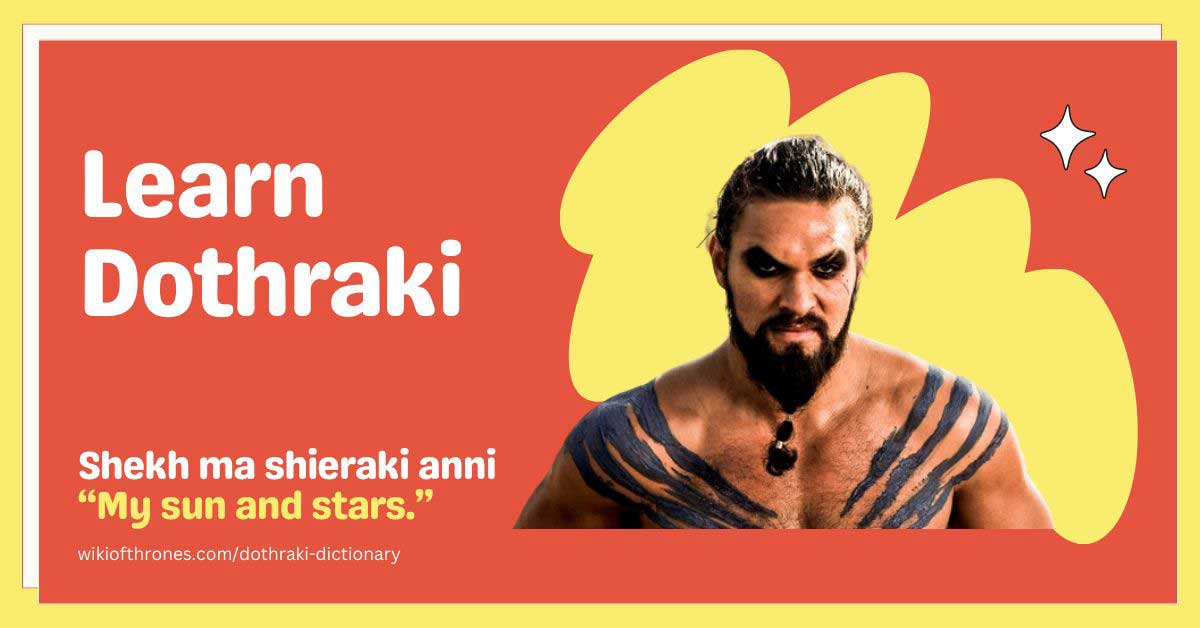High Valyrian Dictionary
Dictionary
Advanced options
We may not have dragons to fly high and conquer the seven kingdoms like the mighty Targaryens did way back then, but we sure can understand their ancestral language – High Valyrian.
Don’t forget to check our Dothraki Dictionary
What is the High Valyrian Language?
Created by David J. Peterson, High Valyrian is the language of royalty as heard in the HBO show Game of Thrones. Spoken by the true-born royals of Essos and Westeros, the language is used in poetry, literature, and verbal exchanges alike.
Old Valyria may have crumbled to ashes as prophesied by Daenys The Dreamer, but the High Valyrian language has endured the test of time. Moreover, dragons from Valyria understand High Valyrian and the Targaryens command their earnest companions in the same language. Another golden reason to know what the Valyrian language sounds like!
What is a High Valyrian Translator?
Through our advanced tool, you can now immerse yourself in the princely world of Valyria, where dragons ruled the skies and lands alike. Enter any word or phrase of your choice in English and watch as the translator tells you exactly how that would be spoken in High Valyrian. It’s time you see what it’s like to be a Targaryen and speak the language of Kings and Queens. The English-to-Valyrian translation will be as accurate as it can be, though certain words may not have a Valyrian translation since the language is entirely fictional.
Quick Navigation
Pronunciation Guide
High Valyrian pronunciation is essential to capture the authentic sound of this royal language. Here’s a basic guide to pronouncing key sounds in High Valyrian, helping you speak like a true Targaryen.
Pronunciation of Letters and Sounds:
-
- A: Like the “a” in “father.”
- AI: Like the “i” in “mice.”
- AO: Like the “ou” in “mouse.”
- B: Like the “b” in “bad.”
- D: Like the “d” in “dog.”
- E: Like the “e” in “get.”
- G: Like the “g” in “goat” (not like “genius”).
- GH: Like the French “r” in “rouge.”
- H: Like the “h” in “hop,” always pronounced except in digraphs.
- I: Like the “i” in “machine.”
- J: Pronounced like the “j” in “jam” or the “g” in “genre.”
- K: Like the “k” in “sky” (without aspiration).
- L: Like the “l” in “love.”
- LY: Like the “lli” in “million.”
- M: Like the “m” in “matter.”
- N: Like the “n” in “never.”
- NY: Like the “ni” in “onion.”
- O: Like the “o” in “tote.”
- P: Like the “p” in “spike” (without aspiration).
- R: Like the trilled “r” in Spanish, “perro.”
- RH: Like the “r” sound but unvoiced.
- S: Like the “s” in “sad.”
- T: Like the “t” in “stake” (without aspiration).
- U: Like the “u” in “impromptu.”
- V: Like the “v” in “van.”
- Y: Like the “y” in “yak” or a high front rounded vowel.
- Z: Like the “z” in “zebra.”
Unique Sounds in High Valyrian:
-
- Uvular Stop (“q”): Similar to the “q” in Arabic pronunciation of Iraq.
- High Front Rounded Vowel (“y”): Like the “ü” in German für.
- Long Vowels: Identical to short vowels but held longer.
- Doubled Consonants (Geminates): Pronounce consonants twice, similar to the longer “s” in “Miss Sally.”
Grammar Basics
Understanding the structure of High Valyrian helps in creating accurate translations. Here, we provide an overview of essential grammatical rules, from verb conjugations to noun cases.
Nouns
High Valyrian has an unusual noun system, with four “genders” unrelated to biological sex. These genders—Lunar, Solar, Aquatic, and Terrestrial—refer to word forms rather than actual concepts. For instance, Lunar nouns, like “vala” (man), have no final consonant, while Solar nouns, like “azantys” (knight), end in “s.” Recognizing these genders helps with noun declension.
Nouns change form depending on their role in a sentence, specifically in the nominative (subject) and accusative (object) cases. The final vowel of a noun, called the “theme” vowel, determines how the word is inflected. For example, “vala” becomes “vale” in the accusative, while “azantys” changes to “azanti.”
Pluralization
Pluralization also follows specific patterns. For instance, Lunar nouns like “vala” become “vali” in the plural nominative and “valī” in the plural accusative. Solar nouns like “azantys” become “azantyssy” in the plural nominative and “azantī” in the plural accusative.
Adjectives
Adjectives in High Valyrian come in two types. The first type, such as “kirine” (happy), is simpler and has limited forms, while the second type, like “ñuha” (my), changes based on gender, number, and case, matching the noun it describes. For example, “Ñuha muña” means “my mother,” while “Ñuhī muñī” means “my mothers.”
In short, understanding gender, noun cases, and adjective agreement is crucial for mastering High Valyrian grammar.
Common High Valyrian Words and Phrases
To get you started, here’s a list of frequently used High Valyrian words and phrases:
- Dracarys – Fire
- Valar Morghulis – All men must die
- Valar Dohaeris – All men must serve
- Rytsas – Hello
- Kessa – Yes
- Daor – No
- Kirimvose – Thank you.
- Geros ilas – Goodbye.
- Sōnar mastan – Winter is here
- Nerni ōrēs – Hold the door.
- Udrizi Valyrio ȳdrā? – Do you speak Valyrian?
- Ñuho glaeso hūrus – Moon of my life
- Merbun – I’m hungry.
- Dovaogēdy – An Unsullied.
- Avy jorrāelan. – I love you.
- Ñuhor līr gūrēnna. – I will take what is mine.
- Bantis zōbrie issa se ossȳngnoti lēdys. – The night is dark and full of terrors.
- Skorverdon dekuroti Dōros hen kesīr ilza? – How much farther is the wall?
- Riña dōre brōzi ēza- A girl has no name.
- Tubī daor. – Not today.
Famous Quotes
High Valyrian plays a key role in many memorable moments from Game of Thrones and House of the Dragon. Here are a few famous quotes to inspire your learning:
Spoken by Daenerys Targaryen
“Nyke Daenerys Jelmāzmo hen Targārio Lentrot, hen Valyrio Uēpo ānogar iksan. Valyrio muño ēngos ñuhys issa. Dovaogēdys! Āeksia ossēnātās, mentī ossēnātās, qiloni pilos lue vale tolvie ossēnātās, yn riñe dore odrikātās. Urnēt luo buzdaro tolvio belma pryjātās!”
TRANSLATION: “I am Daenerys Stormborn of the House Targaryen, of the blood of Old Valyria. Valyrian is my mother tongue. Unsullied! Slay the masters, slay the soldiers, slay every man who holds a whip, but harm no child. Strike the chains off every slave you see!”
Spoken by Missandei
“Bizy sa Daenerys Targaryen, Jelmazmo, Dorzalty, Daria Sikudo Daryti Vestero, Muña Zaldrizoti. Sa va zer sko enkat jiva serve.”
TRANSLATION: “This is Daenerys Targaryen, the Stormborn, the Unburnt, the Queen of the Seven Kingdoms of Westeros, the Mother of Dragons. It is to her you owe your freedom.”
Spoken by Vaemond Velaryon
“Inkoso kostōbāpis aōhis jelmīs sagon, gīso lykāpas aōhas embis, se prūmȳsa lēdāpas aōhas manengīs. Hen embār masti. Va embrot āmāzīli.”
TRANSLATION: “May your winds be as strong as your back, your seas be as calm as your spirit, and your nets be as full as your heart. From the sea we came. To the sea we shall return.”
Spoken by Rhaenyra Targaryen
“Velaria embōñar issi. Yn ao nykē perzōñi iksi. Hen prānot hae mērȳ zālagon indīliks.”
TRANSLATION: “The Velaryons are of the sea. But you and I are made of fire. We have always been meant to burn together.”
Spoken by Daemon Targaryen
“Vȳs otāpti līr iksos daor. Vīlībāzma kesa prānon mērī issa. Sōnar amāzis. Zōbrȳmi vējomē.”
TRANSLATION: “The world is not what we thought it was. This war is just the beginning. Winter is coming, with darkness and doom.”
FAQ
Here are answers to some frequently asked questions:
How was High Valyrian created?
Linguistic expert David J. Peterson created High Valyrian from scratch for the Game of Thrones TV show. Peterson used his knowledge of 22 languages to create a structured language with its own linguistic rules.
What is High Valyrian like?
High Valyrian is a head-final language, meaning adjectives come before nouns. It also has four gender classes: Lunar, Solar, Aquatic, and Terrestrial.
How is High Valyrian used in the show?
In House of the Dragon, the Targaryen family and their closest court nobles use High Valyrian, though it’s not always seen on-screen. Rhaenyra and Daemon are often seen using it.
What is Low Valyrian?
Low Valyrian is a variant of High Valyrian that was created by making grammatical and phonological changes to High Valyrian dialogue.
Where is High Valyrian spoken?
High Valyrian was the language of the Valyrian Freehold, which was located on the eastern continent of Essos.
Can I learn High Valyrian?
Yes, you can learn High Valyrian on Duolingo. As of 2022, over 3.2 million people worldwide have studied High Valyrian on Duolingo.
Valyrian Dictionary by Wiki of Thrones
This Valyrian Dictionary by Wiki of Thrones uses the Valyrian language and resources created by David J. Peterson. Uses code by Luca Ongaro, 2022, MIT license.
Disclaimer: Valyrian Dictionary by Wiki of Thrones is not affiliated with Game of Thrones, George R. R. Martin, or HBO/WBD. All trademarks belong to their respective owners. The various properties for which David Peterson has created languages are all owned by their respective parent companies. All rights reserved.

